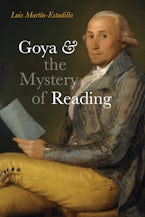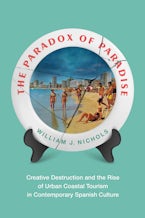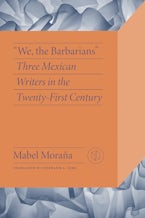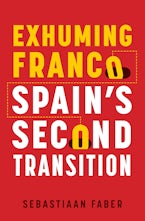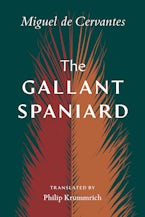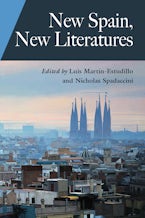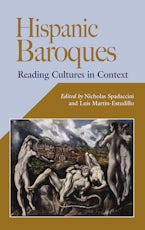- Home
- The Rise of Euroskepticism
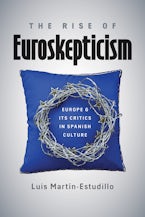
The Rise of Euroskepticism
Europe and Its Critics in Spanish Culture
Covering from 1915 to the present, this book deals with the role that artists and intellectuals have played regarding projects of European integration. Consciously or not, they partake of a tradition of Euroskepticism. Because Euroskepticism is often associated with the discourse of political elites, its literary and artistic expressions have gone largely unnoticed. This book addresses that gap.
Taking Spain as a case study, author Luis Martín-Estudillo analyzes its conflict over its own Europeanness or exceptionalism, as well as the European view of Spain. He ranges from canonical writers like Unamuno, Ortega y Gasset, and Zambrano to new media artists like Valeriano López, Carlos Spottorno, and Santiago Sierra. Martín-Estudillo provides a new context for the current refugee crisis, the North-South divide among EU countries, and the generalized disaffection toward the project of European integration.
The eclipsed critical tradition he discusses contributes to a deeper understanding of the notion of Europe and its institutional embodiments. It gives resonance to the intellectual and cultural history of Europe's "peripheries" and re-evaluates Euroskeptic contributions as one of the few hopes left to imagine ways to renew the promise of a union of the European nations.
Introduction: A Cultural Poetics of Spanish Euroskepticism 1
2 Sense and Sensuousness: Approaching Europe under Franco’s Dictatorship 57
4 On the Move in a Static Europe 127
5 The Great Recession and the Surge of Euroskepticism: A Pigs’ Tale 173
Notes 201
References 217
Index 233
Luis Martin-Estudillo, Associate Professor of Spanish Literature and Culture at the University of Iowa, is Managing Editor of the Hispanic Issues series published by Vanderbilt.
"As the EU searches for new narratives, Luis Martín-Estudillo has written a brilliant and necessary book that questions Spanish approaches to Europe as Arcadia and explores later disillusions and frustrations. In this ambitious, intelligent, reflexive, and extremely well-informed work, Martín-Estudillo traces conflicts previous to the current crisis, depicting a succession of diverse--sometimes opposing--testimonies throughout Spanish thought of the past eighty years, including acute visual examples. He provides a means to rethink not only discourses on Europe and Spain, but also the very construction of Spanishness as masquerade."
--Estrella de Diego, Universidad Complutense de Madrid
"Just when the idea of Europe--that borderless common ground where peace and good life were granted--vanishes due to neoliberal crises, xenophobia, and austerity policies, Martín-Estudillo's brilliant, wise, and provocative book analyzes the complexities and ambiguities of the European project from Spain's perspective."
--Germán Labrador, Princeton University
"At once timely and historically grounded, Luis Martín-Estudillo's compelling study of Spanish 'Euroskepticism' addresses two interlocking, yet at times contrastive, formations: the nation state of Spain and the supranational state of Europe. In both cases, one more naturalized than the other, dreams of unity, diversity, and openness, of peaceful and productive cooperation and communication, are buckled by nightmares of disunity, homogeneity, and closure, of predatory and destructive competition and noncommunication. Reviewing an impressive array of Spanish literary, cultural, political, and philosophical texts on Spain and Europe from the late nineteenth century to the present, Martín-Estudillo grapples with such pressing issues as welfare, migration, xenophobia, conflict, representation, dissent, and the politics of location and mobility, belonging, and difference. Written with verve, rigor, discernment, and clarity, The Rise of Euroskepticism makes an important contribution to one of the burning questions of modern times."
--Brad Epps, University of Cambridge
The Rise of Euroskepticism is available as an open-access ebook, thanks to a grant from the Fellowships Open Book Program through the National Endowment for the Humanities.
This NEH initiative allows scholarly presses to make recent monographs freely available online. Vanderbilt UP has made The Rise of Euroskepticism available for free through all major ebook vendors and is housing a PDF of the book on our website to ensure that anyone who wants to read a copy of the book can do so at no cost. This open-access edition is published under a Creative Commons license, rendering it free for download and distribution.
More information about the OA ebook edition is available at vanderbiltuniversitypress.com/resources/open-access/.

